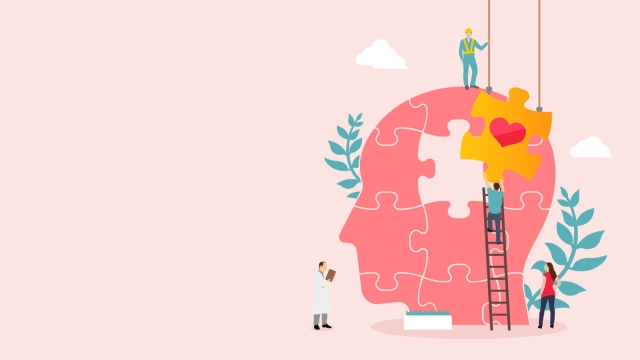Welcome to a journey towards nurturing mental health for a happier you. In a world where physical health often takes precedence, it’s crucial to break the stigma surrounding mental health and acknowledge its significance. We all strive for happiness and contentment, yet neglecting our mental well-being can hinder us from achieving these goals. Engaging in conversations about mental health is not only courageous but also necessary for personal growth and overall well-being.
Mental health encompasses our emotional, psychological, and social well-being. It affects how we think, feel, and act, shaping our overall outlook on life. Just as we care for our physical health through exercise and proper nutrition, we must also prioritize our mental health by nurturing our minds and emotions. Fortunately, there are numerous strategies and resources available to support and enhance our mental well-being, allowing us to lead happier and more fulfilling lives.
In this article, we will explore various aspects of mental health and provide practical tips and advice on how to cultivate a positive state of mind. From self-care practices and mindfulness techniques to seeking professional help when needed, we will uncover the tools that can empower us on our mental health journey. By embracing a proactive approach towards mental well-being, we can break free from societal biases and create a safe space for open dialogues, ultimately fostering a happier and more empathetic society. So, let’s embark on this transformative quest together, leaving behind the stigma and embracing a future where mental health is given the recognition it deserves.
Understanding Mental Health
Mental health is a crucial aspect of overall well-being and happiness. It encompasses our emotional, psychological, and social well-being, affecting how we think, feel, and act. Just as physical health is important for a balanced life, mental health plays a significant role in our ability to cope with daily challenges and enjoy fulfilling relationships.
When we talk about mental health, it’s important to recognize that it is not solely limited to the absence of mental illness. It is a continuum, ranging from optimal mental well-being to various levels of difficulties or disorders. Just like physical health, mental health can vary from person to person and may change over time.
Taking care of our mental health involves understanding and managing our emotions, stress levels, and relationships. It is about finding a balance between our thoughts, feelings, and behaviors, and seeking support when needed. Just as we prioritize physical check-ups, it is essential to prioritize our mental health and seek professional help or guidance when necessary.
By addressing mental health proactively, we can enhance our resilience, improve our overall quality of life, and foster stronger connections with those around us. Understanding the significance of mental health empowers us to break free from stigmas and create a healthier and happier society for everyone.
Challenging Stigma
Stigma surrounding mental health is a significant barrier that prevents many individuals from seeking the help and support they need. It breeds misconceptions, fear, and discrimination in our society. However, breaking the cycle of stigma is essential for nurturing mental health and fostering a happier, more inclusive environment for everyone.
Education plays a crucial role in challenging stigma. By dispelling myths and providing accurate information about mental health, we can help create a better understanding of the various conditions that affect individuals. It is vital to recognize that mental health is not a personal weakness or a character flaw but rather a complex interaction of biological, psychological, and social factors.
Sharing personal stories can also help challenge stigma. When individuals, including well-known figures, openly discuss their experiences with mental health challenges, it humanizes the issue and encourages others to seek help without shame or embarrassment. By normalizing conversations around mental health, we can create a supportive culture that encourages individuals to prioritize their well-being.
Building communities of support is another powerful way to challenge stigma. Creating safe spaces where individuals can openly express their thoughts and emotions without fear of judgment enables them to seek the support they need. It is essential to foster environments that promote empathy, compassion, and active listening to create a sense of belonging and connection.
By challenging stigma, we can begin to break down the barriers that prevent individuals from seeking help for their mental health. Nurturing a society that supports mental well-being will lead to happier individuals, stronger communities, and a more inclusive world for all.
Nurturing Mental Well-being
In order to nurture our mental well-being, it is important to prioritize self-care and take proactive steps to support our mental health. Here are three key practices that can contribute to a happier and healthier state of mind.
First and foremost, make time for relaxation and stress reduction. Engaging in activities such as meditation, deep breathing exercises, or taking walks in nature can help to calm the mind and reduce anxiety. It is important to carve out moments of stillness and allow ourselves to recharge and rejuvenate.

Secondly, cultivating a positive mindset can have a significant impact on our mental well-being. Practicing gratitude and focusing on the things that we appreciate in our lives can help to shift our perspective and enhance overall happiness. Surrounding ourselves with positive influences, whether it be through supportive relationships or uplifting media, can also contribute to a more optimistic outlook.
Lastly, don’t underestimate the power of regular physical activity in supporting mental health. Engaging in exercise releases endorphins, which are natural mood boosters. Whether it’s participating in a favorite sport, going for a run, or simply dancing to your favorite tunes, finding ways to move your body can greatly benefit both your physical and mental well-being.
By incorporating these practices into our lives, we can foster a nurturing environment for our mental health. Remember, taking care of our mind is just as important as taking care of our body, and investing in our mental well-being is a crucial step towards a happier and more fulfilling life.






